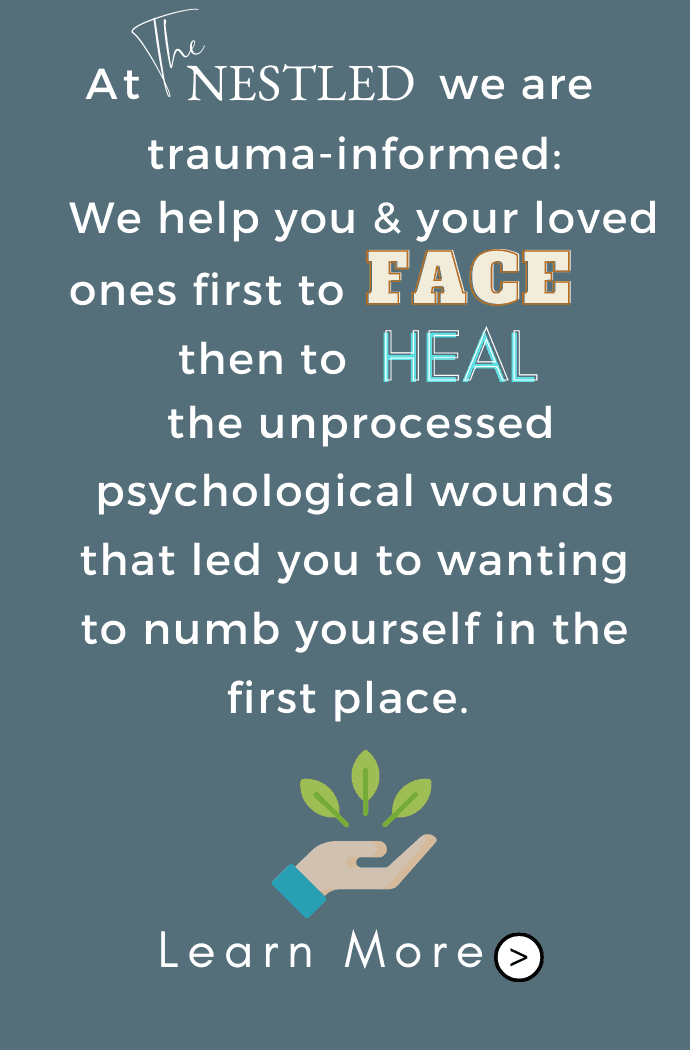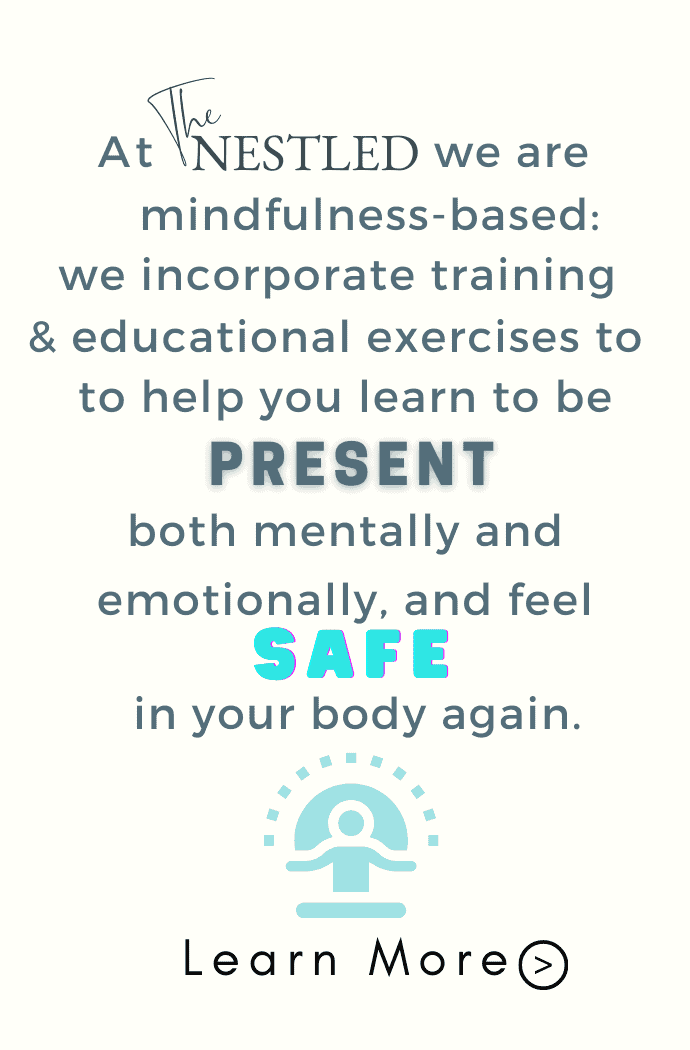Key Takeaway:
- Understanding the impact of substance use disorders: Substance use disorders are prevalent and have significant impacts on individuals and society as a whole. It is essential to understand their complexity and provide proper support and treatment for those affected.
- The importance of language in reducing stigma: The words we use to describe substance use disorders can shape people’s perceptions and contribute to stigma. Accurate, non-judgmental language is crucial in reducing stigma and promoting understanding.
- Effective strategies for reducing stigma: Accurate language and media advocacy are important tools in reducing stigma around substance use disorders. Education and awareness campaigns can also help to promote understanding and reduce negative attitudes towards those affected.
Are you struggling with stigma and shame due to your substance use disorder? By reframing the language used around substance abuse, we can reduce the stigma and create a more supportive environment. You are not alone: let’s explore how words can help us end the stigma.
Understanding Substance Use Disorders
Understanding Substance Use Disorders is essential to address the issue of addiction and reduce stigma around substance use. It involves gaining knowledge about different types of drugs and their effects on the brain, body, and behavior. It also encompasses understanding the complex interplay between biological, psychological, social, and environmental factors that contribute to substance abuse.
Substance use disorders refer to a pattern of harmful use of psychoactive substances, including alcohol, tobacco, opioids, stimulants, hallucinogens, cannabis, and others. These substances alter brain chemistry by mimicking or enhancing natural neurotransmitters and regulating pleasure-reward systems in ways that lead to compulsive drug-seeking behaviors.
To truly understand substance use disorders, one must acknowledge that addiction is a chronic brain disease that affects people from all walks of life. Contrary to common misconceptions, addiction is not a choice or a moral failing. Instead, it stems from changes in brain function that make it difficult for individuals to control their drug use despite negative consequences.
Understanding Substance Use Disorders can help improve prevention efforts through education campaigns that raise awareness about the risks associated with drug misuse. It can also lead to more effective treatment interventions that address underlying issues such as trauma, mental health conditions, or social isolation.
Without this understanding we may perpetuate harmful stereotypes and myths that only serve to further stigmatize those struggling with substance abuse disorder. Let us take the time to learn more about these complex diseases so we can transform our communities into ones that are supportive and inclusive of those living with addiction.
Now let’s delve further into the alarming statistics surrounding substance abuse in our society…
The Alarming Statistics Of Substance Abuse
The abuse of substances has become so prevalent in our society that it is slowly becoming the new normal. The statistics continue to grow at a rate that seems insurmountable, and the effects are alarming.
The prevalence of substance abuse can be attributed to several factors. These include genetics, peer pressure, socialization, and stress among others. As more people fall into addiction, those around them are also likely to follow suit thereby exacerbating the perpetuity of this issue.
According to recent studies, 1 in every 7 Americans will develop a substance use disorder at some point in their lives. This alarming statistic shows just how widespread this problem has become. Additionally, over 164 million people use illicit drugs worldwide; this highlights the fact that drug abuse is not a problem limited only to certain countries or regions.
Using the right language is crucial when addressing substance abuse disorders. For instance, referring to someone as a “junkie” or “addict” can demoralize them further instead of helping them out of their plight. Instead, let us focus on empathy and positive reinforcement while providing assistance towards recovery; by doing so we may set standards for healing and enduring acceptance which shows just how important language is when discussing the issue of Substance Use Disorders (SUDs).

The Power of Language in Substance Use Disorders
The stigma surrounding substance use disorders can be a powerful barrier to getting the help one needs. In this part of the article, we’ll explore the ways that language impacts our understanding and attitudes towards addiction.
Firstly, we’ll delve into the ways that we can work together to eradicate the stigma that prevents those struggling from seeking the help that they need. Secondly, we’ll discuss the implications of language in shaping our perception of substance use disorders, and how changing the way we talk about addiction can drive a more compassionate and effective approach to treatment.
Eradicating the Stigma attached to Substance Use Disorders
Have you ever wondered why some people with Substance Use Disorders (SUD) are hesitant to seek help? It’s because of the attached stigma surrounding substance abuse. This stigma, defined as a negative stereotype or label that society attaches to a certain group or behavior, can create barriers to treatment and recovery for those who need it most.
Eradicating the Stigma attached to Substance Use Disorders is crucial in ensuring that individuals with SUDs receive the assistance and support they need without fear of judgment. One way this works is by changing societal attitudes towards addiction. By educating people on the nature of addiction and its root causes rather than just labeling addicts as ‘weak’ or ‘bad’, we can reduce social stigma.
There are several reasons why Eradicating the Stigma attached to Substance Use Disorders is important. For one, it reduces discrimination against individuals with SUDs, leading to increased access to healthcare services and better health outcomes overall. Additionally, it can encourage those struggling with addiction to seek help earlier, which can lead to more successful treatment and recovery.
Did you know that studies have shown that using non-stigmatizing language when referring to addiction has tangible benefits? It helps decrease stereotyping of individuals with SUDs as being less deserving of compassion and sympathy compared to other patients with chronic illnesses such as diabetes or hypertension. By treating SUD like any other disease, we can humanize those who suffer from it and create an environment of empathy and understanding.
Pro Tip: Next time you find yourself judging someone based on their substance use disorder, try rephrasing your thoughts into something more compassionate. Instead of saying “they’re just a junkie,” try replacing it with “they’re struggling with addiction.” Not only does this eliminate a negative label but also reinforces the reality that these individuals are human beings deserving of respect.
Language’s Implication in Shaping Perception of Substance Use Disorders starts at home! When parents and guardians start talking openly and positively about substance abuse disorders, their children are more likely to develop a positive attitude towards SUDs rather than the usual societal stigma attached to it.
Language’s Implication in Shaping the Perception of Substance Use Disorders
The way we use language has a profound effect on the perception of substance use disorders. It is common knowledge that stigmatizing language exacerbates harmful stereotypes and creates barriers to access healthcare services for individuals who struggle with addiction. But what exactly is the implication of language in shaping the perception of substance use disorders?
Language works by creating cognitive schemas or mental shortcuts that determine our understanding of complex realities. These schemas embody our attitudes and beliefs about a particular subject and influence how we process information related to it. The way we express ourselves can either reinforce negative stereotypes or break them down by challenging prejudices and promoting empathy.
The reason language is so powerful in shaping perceptions lies in its ability to reflect social norms, values, and power dynamics. For instance, when people talk about drug addicts, they tend to use terms like “junkie,” “addict,” or “drug abuser.” Such labels have a dehumanizing effect because they reduce individuals living with substance use disorders to their condition rather than acknowledging them as human beings with individual stories, experiences, and dreams.
A growing body of research shows that using non-stigmatizing language can promote more compassionate attitudes towards individuals who are dealing with addiction. Using person-first language (such as “person living with a substance use disorder” instead of “substance abuser”) helps recognize the person beyond the illness and puts focus on recovery rather than addiction.

Effective Strategies for Reducing Stigma
In this portion of our article, we will explore effective strategies for reducing stigma. We will take a closer look at the power of accurate language and the importance of deeper understanding when discussing substance use disorders. In addition, we will discuss how media advocacy can play a crucial role in spreading awareness and reducing stigma. Through these strategies and others, we can work together to create a more supportive and compassionate society for those impacted by substance use disorders.
Accurate Language and Deeper Understanding
Accurate Language and Deeper Understanding are powerful strategies for reducing stigma associated with substance use disorders. By using accurate and appropriate language, we can create a deeper understanding of the complexity of addiction and reduce negative stereotypes that perpetuate stigma.
When we use accurate language, we avoid stigmatizing terms like “addict” or “junkie” and instead use person-first language that recognizes individuals as people first rather than their addiction. By doing so, we acknowledge their humanity and promote empathy towards those struggling with a substance use disorder.
Furthermore, deeper understanding involves listening to those who have lived experience with addiction and acknowledging the social and environmental factors that contribute to substance use disorders. This approach helps break down the false belief that addiction is solely a moral failing or personal choice, leading to more compassion for those in recovery.
It’s essential to understand that language informs perceptions, attitudes, and beliefs about substance use conditions. It can either challenge or reinforce stereotypes about individuals who struggle with these issues. Hence it’s crucial to be mindful of our language use when discussing substance use issues as they can impact people in various ways.
According to SAMHSA (Substance Abuse and Mental Health Services Administration), “Negative attitudes toward people struggling with SUDs discourage them from entering treatment programs.” Such treatment-related biases arise from widely held societal assumptions about character flaws or lack of willpower leading ill-informed professionals turning away patients seeking help.
Therefore, the Correct Use of Language entails practicing Person-First Terminology (PFT). PFT means acknowledging the individual first then highlighting his/her challenges/diagnosis without shoehorning them into their illness label.
Emphasizing the Significance of Language for Overcoming Stigma
The problem of stigma around substance use disorders is not new. It goes hand in hand with how society has always viewed addiction. However, there is a way to reduce this stigma, and that is emphasizing the significance of language.
Language plays an essential role in shaping perspectives, ideas, and beliefs. It allows people to communicate and express their thoughts, feelings and emotions effectively. When it comes to substance use disorders, these expressions are often negative or derogatory. The usage of stigmatizing labels such as addict, junkie, or abuser can further entrench societal judgement against those struggling with addiction. Emphasizing the importance of using respectful language improves social perceptions and reduces stigma.
The significance of language can be explained by its impact on individual agency and mental health outcomes. For example, someone who identifies as a “recovering addict” instead of just an “addict” recognizes their own triumphs over addiction rather than defining themselves solely by the disorder they’ve faced. Indeed, using positive language like “person-first terminology” speaks to individual strength rather than setbacks that they may have since overcome.
Interestingly enough, studies show that altering common word choices for individuals dealing with substance use disorder can even alter neurocognitive responses from peers when processing that person’s face – lexical differences truly affect not only what we think but also how our brains respond.
Encouraging Further Research and Advocacy Efforts to Tackle Stigma.
Encouraging Further Research and Advocacy Efforts to Tackle Stigma is vital in the battle against substance use disorders. To combat this social issue, researchers and advocates must work together to promote awareness and understanding of these medical conditions. This approach can include education programs, anti-stigma campaigns, and research studies that explore various aspects of substance use disorders.
Encouraging further research provides opportunities to promote a better understanding of this social issue. Research studies create knowledge about the causes, symptoms, and treatments of substance use disorders which go beyond empirical data. The knowledge generated by researchers helps build a comprehensive understanding of substance use disorders, which can help fight negative stereotypes or misconceptions. Furthermore, research can pave the way for innovative treatments to manage addiction-related issues.
By advocating efforts against stigma with government agencies or community organizations, they can help people living with these medical conditions integrate into society seamlessly. One reason why advocacy efforts have been successful is due to higher levels of engagement with diverse communities. Advocates involve individuals who are either currently experiencing the problem or those who have recovered from it. As a result, such engagements create an excellent opportunity for policymakers to understand challenges faced by people struggling with addiction.
Encouraging Further Research also serves as a rallying point for stakeholders looking towards reducing the stigmatization existing within the external community/mindset through training or introducing empathy-oriented practices focused on injecting compassionate policies in public health research options.
Five Facts About Reducing Stigma Around Substance Use Disorders:
- ✅ 21.7 million Americans ages 12 and older had a substance use disorder in 2015, but only 10.8% of them received treatment. (Source: SAMHSA)
- ✅ Language use can impact the stigma and discrimination experienced by individuals with substance use disorders, and appropriate language can help to reduce this stigma. (Source: NCBI)
- ✅ Changing harmful attitudes toward individuals with substance use disorders can lead to better treatment outcomes and overall public health. (Source: NIH)
- ✅ The media can play a significant role in reducing stigma by portraying substance use disorders in a more accurate and compassionate way. (Source: NIDA)
- ✅ Stigma towards individuals with substance use disorders can lead to reduced access to healthcare, housing, and employment opportunities, perpetuating the cycle of addiction and stigma. (Source: APA)
FAQs about Reducing Stigma Around Substance Use Disorders: Why Words Matters
1. How can using the right words reduce stigma around substance use disorders?
Using the right words helps to reduce stigma around substance use disorders because it helps to avoid negative connotations that can reinforce stereotypes and biases.
2. What are some words to avoid when talking about substance use disorders?
Words to avoid when talking about substance use disorders include “addict,” “junkie,” and “abuser” because they can reinforce negative stereotypes and reduce the person to their addiction.
3. Are there any words that are more appropriate to use when talking about substance use disorders?
If there are any words that are more appropriate to use when talking about substance use disorders, it is more appropriate to use person-first language, such as “person with a substance use disorder” or “person in recovery.”
4. How does reducing stigma around substance use disorders improve outcomes for those with these disorders?
Reducing stigma around substance use disorders improves outcomes for those with these disorders by making it easier for them to seek help and access treatment without fear of judgment or discrimination.
5. What are some ways to reduce stigma around substance use disorders?
Ways to reduce stigma around substance use disorders include using person-first language, educating people about substance use disorders, and challenging negative stereotypes and biases.
6. Why is it important to reduce stigma around substance use disorders?
Reducing stigma around substance use disorders is important because it can improve outcomes for those with these disorders and help to create a more supportive and compassionate society for all individuals.








